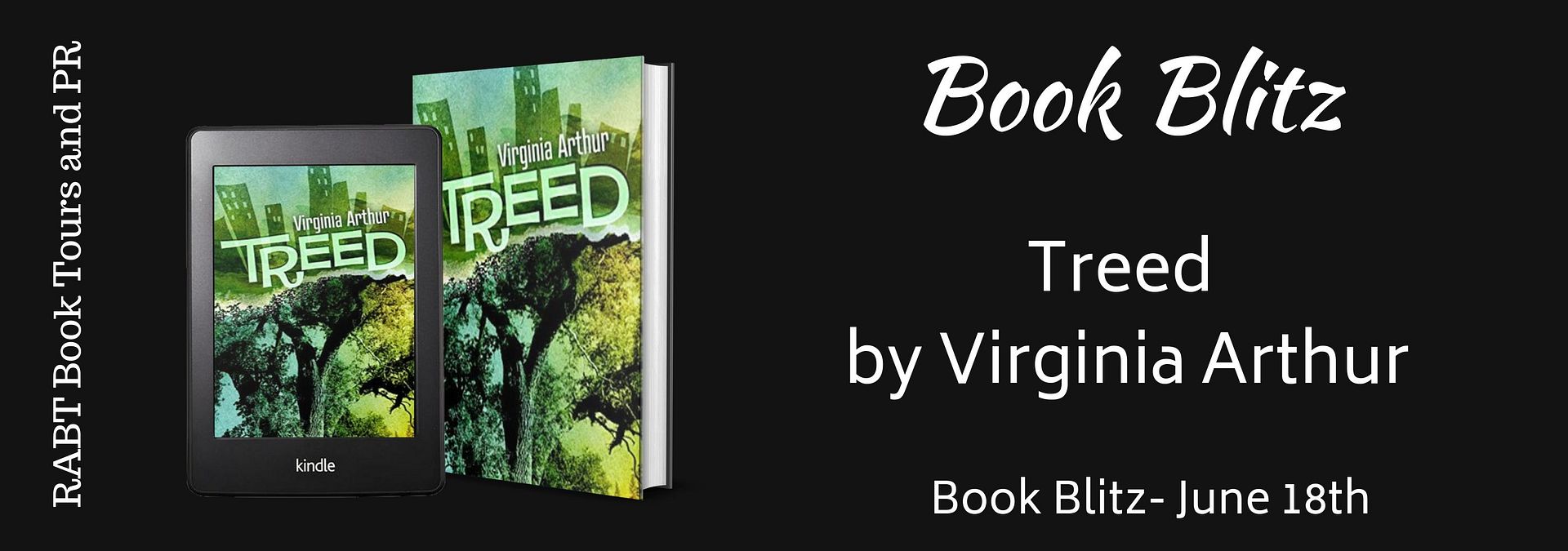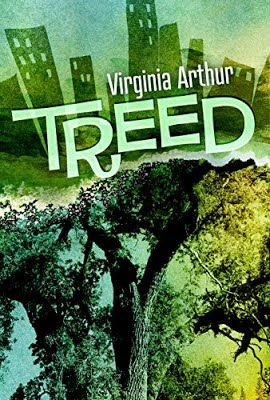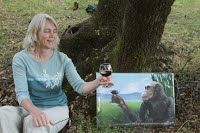Eco-fiction,
Political Fiction
Political Fiction
Publisher:
Ecological Outreach Services
Ecological Outreach Services
Published:
September 2018
September 2018
Because
Trees Have Consequences
Trees Have Consequences
A
consequence of getting older is current experiences inevitably get threaded to
memories as Maybelline Emmons learns when she embarks on what she thinks will
be a simple road trip to find a tree. She experiences something so confounding,
painful, transformational–none of which she signed on for; her evenings
drinking Pinot, watching her hummingbirds…this was always enough.
consequence of getting older is current experiences inevitably get threaded to
memories as Maybelline Emmons learns when she embarks on what she thinks will
be a simple road trip to find a tree. She experiences something so confounding,
painful, transformational–none of which she signed on for; her evenings
drinking Pinot, watching her hummingbirds…this was always enough.
This
passionate yet comic story revolves around efforts to save an old-growth tree
but things go off the rails in a compelling, edge-of-your-seat way. Per
Virginia Arthur’s two previous novels, Treed will curl the tendrils of your
heart and blow your leaves off.
passionate yet comic story revolves around efforts to save an old-growth tree
but things go off the rails in a compelling, edge-of-your-seat way. Per
Virginia Arthur’s two previous novels, Treed will curl the tendrils of your
heart and blow your leaves off.
Excerpt
Wiping
tears off her face, she returned to the hotel where an envelope from Millicent
was waiting for her.
tears off her face, she returned to the hotel where an envelope from Millicent
was waiting for her.
Once
in her room, she tossed the envelope on the chair and gave way to the bed. She
stared at the ceiling. It had not
even been 24 hours; there was still time. She called Millicent’s cell phone.
She left a message she was returning
to Santa Barbara and to send any final paperwork to her address there, most
importantly, the title.
in her room, she tossed the envelope on the chair and gave way to the bed. She
stared at the ceiling. It had not
even been 24 hours; there was still time. She called Millicent’s cell phone.
She left a message she was returning
to Santa Barbara and to send any final paperwork to her address there, most
importantly, the title.
The
next morning she drove past the tree, a stone of dread in her gut. What if
Tamara was right? No, she was the
owner now. No one could legally touch the land, the tree, Millicent would see
to that.
next morning she drove past the tree, a stone of dread in her gut. What if
Tamara was right? No, she was the
owner now. No one could legally touch the land, the tree, Millicent would see
to that.
She
was grateful for the long drive home even as her cell was alerting her she had
messages. She turned it off.
was grateful for the long drive home even as her cell was alerting her she had
messages. She turned it off.
Thoughts
of the tree were now taking up all the space in her mind; space previously
taken up by grief and loneliness
was now replaced with “what the hell have I done?” Which was better?
of the tree were now taking up all the space in her mind; space previously
taken up by grief and loneliness
was now replaced with “what the hell have I done?” Which was better?
“What
the fuck?” she said out loud, surprising herself because she rarely if
ever used this word. “What do I do?”
she asked no one. Fence it? Cut the kids out? Where else would they ‘hang out’?
In the parking lots of their apartment
complexes, the strip malls, the drugstores, behind their computers? There was
no place for them. What about
Tamara’s grandfather? What would he say about cutting the kids out, off?
“Make it into a park” is what Millicent
said. What about liability? What if something happened? This is why people
fence land off from other people.
Would the insurance company force her to do this? Obviously the little old lady
that owned it never did…Millicent
knew all about these things. Millicent would guide her.
the fuck?” she said out loud, surprising herself because she rarely if
ever used this word. “What do I do?”
she asked no one. Fence it? Cut the kids out? Where else would they ‘hang out’?
In the parking lots of their apartment
complexes, the strip malls, the drugstores, behind their computers? There was
no place for them. What about
Tamara’s grandfather? What would he say about cutting the kids out, off?
“Make it into a park” is what Millicent
said. What about liability? What if something happened? This is why people
fence land off from other people.
Would the insurance company force her to do this? Obviously the little old lady
that owned it never did…Millicent
knew all about these things. Millicent would guide her.
About
the Author
the Author
Virginia
Arthur was born wild. She took to exploring the wilds of her new Ohio suburban
jungle by the time she was ten, launching great birding expeditions in between
backhoes and bulldozers. Her bird list grew shorter in direct correlation with
the number of homes growing larger such that by the time she was 12, she was a
raging environmentalist, before the word even existed. This delighted her
parents to no end. She continued on this profoundly pointless and frustrating
path by earning a B.S. in Field Biology and a M.S. in Botany (Ecology) only to
continue the exploring, observing of a country at war with its natural self.
She weaves these experiences into her novels. She has published three novels,
all “comedic-drama”. Her first novel, Birdbrain, an eco-political fiction novel
based on real life experiences, was published in 2014. Phat(‘s) Chance for
Buddha in Houston (Or How I Spent My Summer Vacation), men’s coming-of-age
short fiction, was published in 2015. In September 2018, she published her
latest, Treed, also eco-political fiction.
Arthur was born wild. She took to exploring the wilds of her new Ohio suburban
jungle by the time she was ten, launching great birding expeditions in between
backhoes and bulldozers. Her bird list grew shorter in direct correlation with
the number of homes growing larger such that by the time she was 12, she was a
raging environmentalist, before the word even existed. This delighted her
parents to no end. She continued on this profoundly pointless and frustrating
path by earning a B.S. in Field Biology and a M.S. in Botany (Ecology) only to
continue the exploring, observing of a country at war with its natural self.
She weaves these experiences into her novels. She has published three novels,
all “comedic-drama”. Her first novel, Birdbrain, an eco-political fiction novel
based on real life experiences, was published in 2014. Phat(‘s) Chance for
Buddha in Houston (Or How I Spent My Summer Vacation), men’s coming-of-age
short fiction, was published in 2015. In September 2018, she published her
latest, Treed, also eco-political fiction.
Purchase
Links
Links





